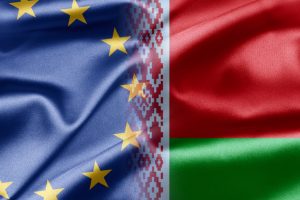Moldova will be able to connect its electricity network with Romania’s thanks to a joint investment by its international partners.
Following an initial €160 million loan provided by the EBRD and the European Investment Bank (EIB) in equal parts, the European Union (EU) is now joining the project with a €40 million investment grant. The World Bank is providing a US$ 70 million loan.
The EU grant will co-finance the construction of a 600 MW back-to-back converter substation in Vulcănești. The World Bank loan will finance the construction of a new 400 kV high-voltage overhead line between Vulcănești and Moldova’s capital of Chisinau, as well as the expansion and upgrade of associated high voltage substations.
The interconnection is of critical importance for the diversification of Moldova’s electricity resources. Currently, the country depends on a single power plant fuelled by natural gas, oil and coal and on electricity imports from Ukraine for up to 80 per cent of its electricity supply.
The link to the Romanian electrical network will considerably enhance the stability and reliability of its power supply – a prerequisite for the country’s economic development.
The diversification of electricity resources will open up Moldova’s electricity market to increased competition, with access to the European market generating economic benefits for both companies and citizens. The project will ultimately pave the way towards Moldova’s integration into the European electricity grid operated by the European Network of Transmission System Operators for Electricity.
The interconnection will be built by Moldova’s public electricity utility Moldelectrica between 2019 and 2024.
Moldova’s Finance Minister, Natalia Gavriliță, said: “This joint financing operation has been designed as an ambitious and comprehensive energy development project whose overall objective is to increase capacity and improve reliability of the power transmission system in the Republic of Moldova. I am delighted to witness the Government of Moldova making a strategic decision to interconnect asynchronously with Romania, as the optimal solution to resolve the security of supply issue.”
EU Ambassador to the Republic of Moldova, Peter Michalko, added: “Today we took a step forward in our effort to help the Republic of Moldova connect to the electricity distribution network of the EU, which will contribute greatly to the country’s energy security. In the medium-term, the goal is the full integration into the European Network of Transmission System Operators for Electricity. It is a long process but worth the effort.”
World Bank Country Manager for Moldova, Anna Akhalkatsi, commented: “The signing of the Power System Development Project is a significant milestone for Moldovan authorities on the way to strengthening and diversifying Moldova’s energy infrastructure. The World Bank and our partners — the European Union, the European Bank for Reconstruction and Development, and the European Investment Bank — believe that this project will contribute to ensuring a stable and energy-secure future for Moldova.”
EBRD Head of Moldova, Angela Sax, praised the coordinated international effort to support Moldova in improving the reliability of its power supply. She stated: “The EBRD is pleased to join forces with the European Union, the World Bank and the European Investment Bank to help Moldova integrate into the European electricity market. This project is yet another illustration of international institutions coming together to support the development of Moldova and its infrastructure to the benefit of all people living here.”




